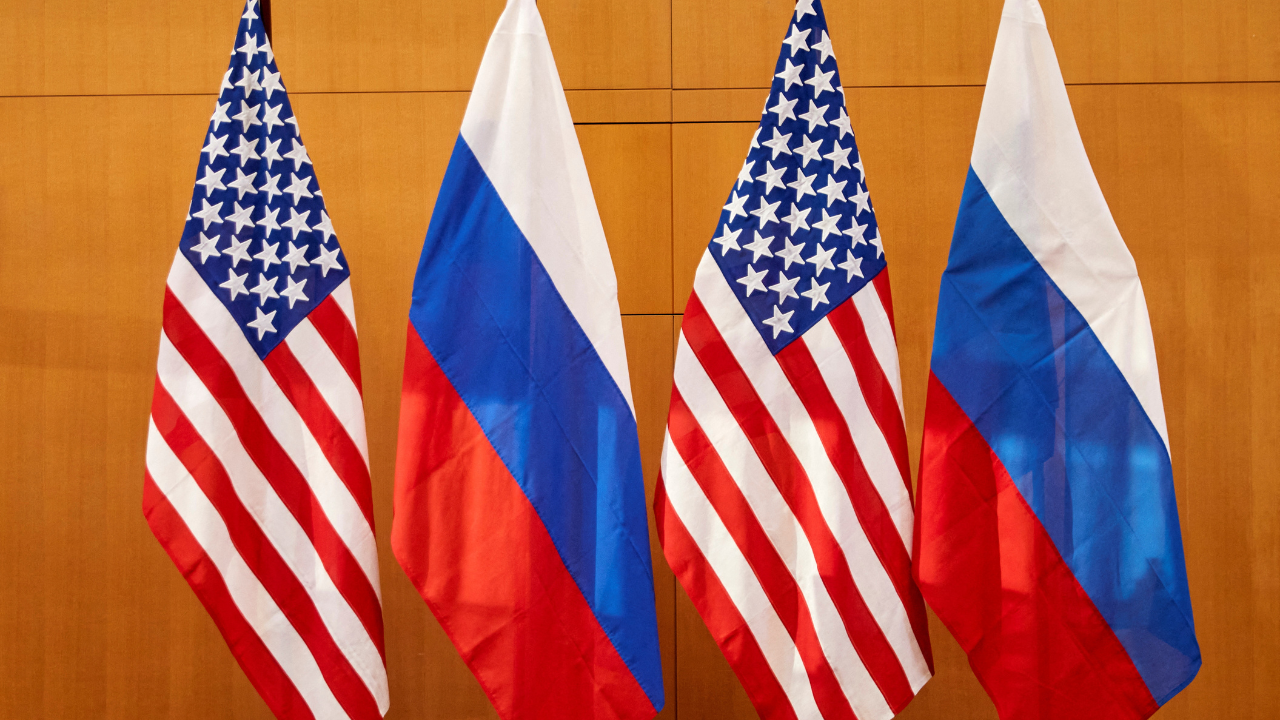MOSCOW: Russian defence minister Andrei Belousov and his US counterpart Lloyd Austin spoke by phone on Tuesday to discuss the conflict in Ukraine, Moscow’s defence ministry said.
The United States is one of Ukraine’s staunchest military backers, contributing billions of dollars’ worth of aid and drawing condemnation from Russia, which has accused Washington of “direct involvement” in the hostilities.
Russia’s defence ministry said in a statement that Belousov and Austin had “exchanged views on the situation around Ukraine”, noting the conversation took place “at the initiative of the American side”.
“Andrei Belousov pointed to the danger of further escalation of the situation in connection with the ongoing supply of US weapons to the armed forces of Ukraine,” it continued. “Other issues were also discussed.”
Pentagon spokesman major general Pat Ryder also reported the phone call took place, saying in a statement that Austin had “emphasised the importance of maintaining lines of communication amid Russia’s ongoing war against Ukraine”.
He added it was Austin’s first call with Belousov, who was appointed in May.
Russia has slammed the United States for its ongoing military support for Ukraine, and Washington recently gave Kyiv the green light to use long-range US weapons on parts of Russia near the beleaguered city of Kharkiv.
On Monday, the Kremlin warned the United States of “consequences” and summoned its ambassador after Moscow said a Ukrainian strike with a US missile in Crimea killed four people.
Ryder said at the time that the Ukrainians “make their own decisions”.
State department spokesman Matthew Miller, meanwhile, blamed Russia for the fighting and reiterated the stance of most of the world, that Crimea, unilaterally annexed by Moscow in 2014, remains part of Ukraine.
Western weapons shipments to Ukraine have been an increasingly sore point for Moscow.
At a meeting with international news agencies this month, Russian president Vladimir Putin questioned why Moscow couldn’t do the same for foes of the West.
“Why don’t we have the right to supply weapons of the same class to regions of the world where there will be strikes on sensitive facilities of those (Western) countries?” Putin said.
He said last week that he “does not rule out” sending weapons to North Korea, after he visited the reclusive country and signed a mutual defence pact. Putin also warned South Korea not to arm Ukraine.
The United States is one of Ukraine’s staunchest military backers, contributing billions of dollars’ worth of aid and drawing condemnation from Russia, which has accused Washington of “direct involvement” in the hostilities.
Russia’s defence ministry said in a statement that Belousov and Austin had “exchanged views on the situation around Ukraine”, noting the conversation took place “at the initiative of the American side”.
“Andrei Belousov pointed to the danger of further escalation of the situation in connection with the ongoing supply of US weapons to the armed forces of Ukraine,” it continued. “Other issues were also discussed.”
Pentagon spokesman major general Pat Ryder also reported the phone call took place, saying in a statement that Austin had “emphasised the importance of maintaining lines of communication amid Russia’s ongoing war against Ukraine”.
He added it was Austin’s first call with Belousov, who was appointed in May.
Russia has slammed the United States for its ongoing military support for Ukraine, and Washington recently gave Kyiv the green light to use long-range US weapons on parts of Russia near the beleaguered city of Kharkiv.
On Monday, the Kremlin warned the United States of “consequences” and summoned its ambassador after Moscow said a Ukrainian strike with a US missile in Crimea killed four people.
Ryder said at the time that the Ukrainians “make their own decisions”.
State department spokesman Matthew Miller, meanwhile, blamed Russia for the fighting and reiterated the stance of most of the world, that Crimea, unilaterally annexed by Moscow in 2014, remains part of Ukraine.
Western weapons shipments to Ukraine have been an increasingly sore point for Moscow.
At a meeting with international news agencies this month, Russian president Vladimir Putin questioned why Moscow couldn’t do the same for foes of the West.
“Why don’t we have the right to supply weapons of the same class to regions of the world where there will be strikes on sensitive facilities of those (Western) countries?” Putin said.
He said last week that he “does not rule out” sending weapons to North Korea, after he visited the reclusive country and signed a mutual defence pact. Putin also warned South Korea not to arm Ukraine.

